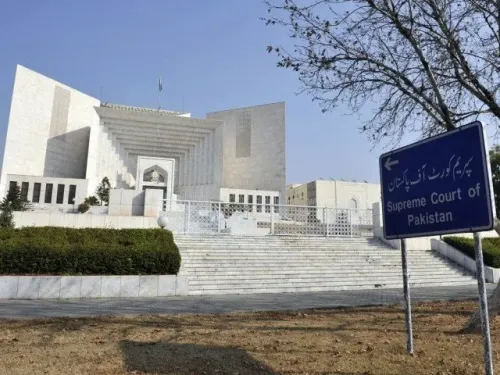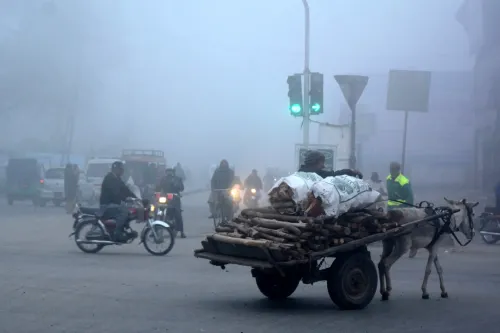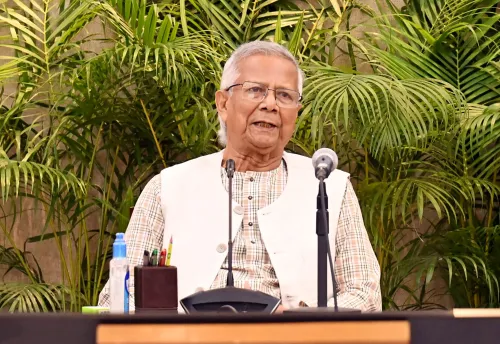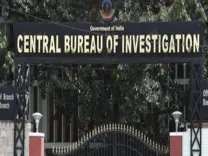Analysts Believe Yunus Government in Bangladesh Lacks Commitment to Economic Reforms
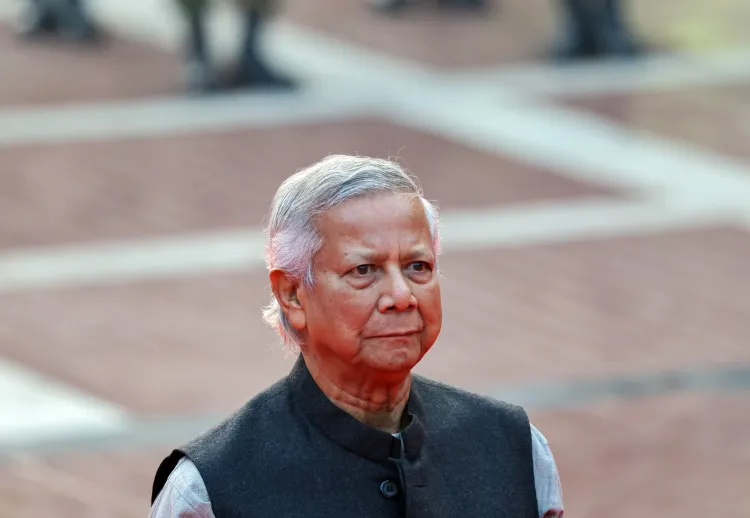
Synopsis
Key Takeaways
- Interim government criticized for lack of economic reforms.
- Reports from reform committees remain unimplemented.
- Experts doubt government's commitment to structural changes.
- Economic conditions worsen amid ongoing political unrest.
- Businesses hesitant to invest due to uncertainty.
Dhaka, Mar 5 (NationPress) Facing significant political and security challenges, the interim government in Bangladesh, led by Muhammad Yunus, is receiving substantial criticism from its own stakeholders for not fulfilling the promised economic reforms in this tumultuous country.
Since taking office last year after the ousting of former Prime Minister Sheikh Hasina, the interim government has established various commissions, committees, and task forces intended to implement reforms across different sectors in Bangladesh.
Two reform committees have submitted their reports on economic reforms, yet the Yunus-led government has failed to act on the recommended actions.
Experts express concern that the Chief Advisor is hesitant to initiate any reforms, as the recommendations from the committees remain unaddressed, raising questions about the government's commitment to the structural changes promised.
The first report on the white paper was delivered in December, while the second from the taskforce was presented to authorities in January of this year.
“Since then, no meaningful steps have been taken by the government to implement the suggestions from the two reports. This inaction has caused frustration among committee members, leading many to assert that the government is not prioritizing economic reforms,” reported Bangladesh's prominent daily, Prothom Alo, on Wednesday.
Recently, the Centre for Policy Dialogue (CPD), a think tank in Dhaka, highlighted a grim economic forecast for Bangladesh in a paper titled 'Navigating Expectations in Turbulent Times', which revealed that the interim government's economic actions have yet to yield significant improvements in the lives of citizens and support for businesses.
In January, Bangladeshi Finance Advisor Salehuddin Ahmed emphasized the urgency for economic reforms to tackle pressing issues. During an event celebrating International Customs Day at the National Board of Revenue (NBR) headquarters in Dhaka, he underscored the necessity for change.
“We often discuss political, economic, and electoral reforms. All are vital, but economic reforms are the most pressing at this moment,” Ahmed was quoted as saying by Dhaka Tribune.
Bangladesh's economy continues to grapple with significant challenges amidst the ongoing unrest in the country since August 2024. The business sector is experiencing a severe liquidity crisis, leading to the closure of numerous commercial and industrial establishments.
Last week, South Korean Ambassador to Bangladesh, Park Young-sik acknowledged that political instability and uncertainty are hindering investment and economic growth in Bangladesh.
“Bangladesh is currently governed by an interim administration, and whenever I converse with businessmen, they express hesitation in making investments. They are adopting a wait-and-see approach regarding the evolving situation,” the diplomat stated at an event organized by the Overseas Correspondents Association Bangladesh (OCAB) in Dhaka on Friday.
“Regardless, political instability and uncertainty are creating challenges for the host country (Bangladesh). It is essential to resolve the political issues,” he remarked.
Entrepreneurs in Bangladesh are not only struggling to import raw materials necessary for their businesses but are also confronting significant threats following the collapse of the Awami League government led by Hasina.
They have repeatedly urged the interim government to ensure a safe and secure environment for all businesses and industries, particularly the ready-made garments sector, which is crucial to Bangladesh's export economy.

